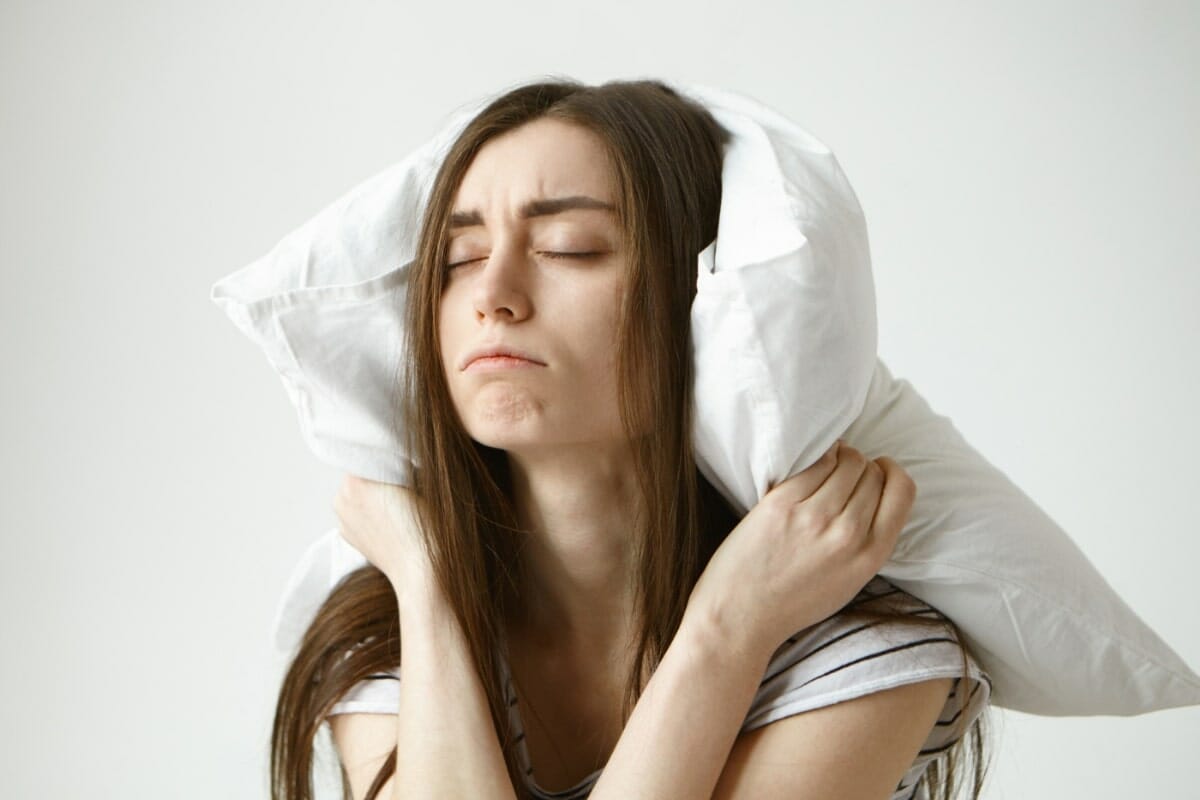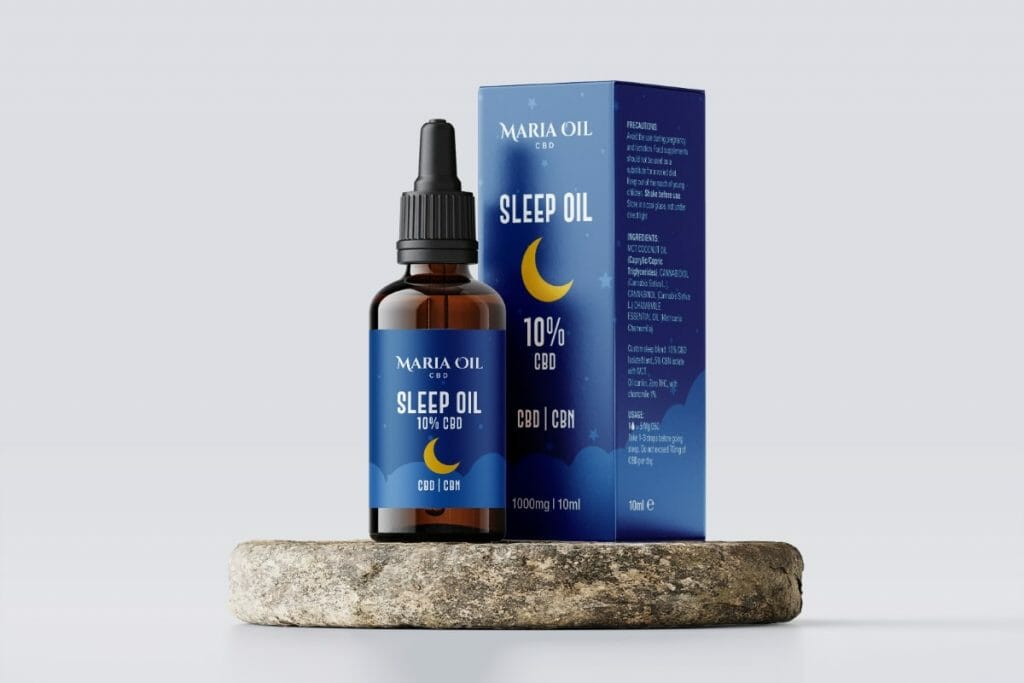Contents index
CBD, also known as cannabidiol, is one of the main compounds in cannabis plants. In recent years, CBD has attracted much attention from scholars and consumers for its therapeutic properties and positive health effects. Cannabidiol is used to treat a wide range of health problems, including anxiety, depression, chronic pain and sleep disorders. In this article, we will focus on the use of CBD oil to treat insomnia.
Insomnia is a very common sleep disorder that prevents an individual from getting enough sleep during the night. The causes of insomnia can be many, including stress, anxiety, depression, medical disorders, excessive light and misuse of technology. This disorder can have negative effects on daily life: it can lead to tiredness, difficulty concentrating and irritability. CBD oil, as mentioned above, is able to alleviate the typical symptoms of insomnia, and is also able to improve an individual’s general state of well-being.
Insomnia and its causes
Insomnia is a frequent sleep disorder that affects many individuals worldwide. In fact, it is estimated that up to 30% of the adult population suffers from insomnia. The causes of insomnia can be many: stress, anxiety, depression, medical disorders, excessive light, technology and, not to be underestimated, changes in daily routine. Another condition that can lead to insomnia is obstructive sleep apnoea, characterised by interruptions in breathing during sleep due to (total or partial) obstruction of the upper airway.
Insomnia can have numerous negative effects on health, both physical and mental, including fatigue, difficulty concentrating, irritability, memory problems, weight gain and increased levels of anxiety, up to extreme cases that can lead to depression. Moreover, chronic insomnia can also increase the risk of long-term health problems, including cardiovascular disease, diabetes and mental illness. For this reason, it is important that sleep disorders are treated appropriately. Over the years, this condition has been studied and analysed, with the aim of discovering the best options to alleviate symptoms and ensure better sleep quality. These include the use of specific medications, behavioural therapies and the use of natural supplements, such as CBD oil.

How CBD can help with sleep disorders
Over the past few years, several studies have shown that CBD possesses relaxing properties that can help improve sleep quality. Cannabidiol works by interacting with the body’s endocannabinoid system, which is responsible for controlling sleep and mood. This system uses naturally produced cannabinoids to regulate sleep quality, but can be adversely affected by external factors such as stress and anxiety.
CBD helps rebalance the endocannabinoid system, reducing stress and general worry, and thus improving sleep quality. In addition to these relaxing properties, cannabidiol also has anti-inflammatory functions that can help reduce pain and inflammation, which can contribute to the onset of insomnia problems.
Research on the use of CBD to treat sleep disorders is still ongoing, but the results so far are promising. A study published in early 2019, looking at various analyses conducted over time, found that the use of cannabidiol supplements, such as CBD oil, can improve sleep quality in people with anxiety and sleep disorders.
In conclusion, we can say that CBD oil is an effective option for treating insomnia and improving sleep for the individuals concerned.
Anxiety and CBD
Anxiety is a very common problem, affecting millions of people worldwide. It can cause symptoms such as muscle tension, rapid heartbeat, sweating, difficulty concentrating and insomnia. Finding an effective and suitable way to manage anxiety is important, so that you can improve your quality of life.
In the course of much research over the past few years, it has been shown that the benefits of hemp oil also include anti-anxiety effects, which can help reduce the typical symptoms of this condition. As mentioned earlier, cannabidiol works by interacting with the body’s endocannabinoid system, which is responsible for controlling mood and the stress response. CBD therefore helps ensure that this system functions properly, thus reducing stress, anxiety and improving mood.
A study published in 2015 found that the use of CBD was able to significantly reduce the symptoms characteristic of this condition in people with generalised anxiety disorders. CBD oil is therefore a viable option for those suffering from anxiety and looking for a natural way to manage it, as well as to improve their general state of well-being.
Insomnia and CBD
Insomnia is a widespread sleep problem that can have serious consequences on the mental and physical health of the individuals involved. People suffering from this condition may experience fatigue, irritability and difficulty concentrating on specific tasks. For quite some time, the benefits of hemp oil to manage this problem have been known and confirmed by several scientific studies.
CBD can help manage insomnia mainly in two ways:
- Firstly, CBD has relaxing properties that can help reduce stress and anxiety, factors that can cause insomnia
- Secondly, CBD can increase levels of serotonin and melatonin, two neurotransmitters important in sleep management. Serotonin helps regulate mood and melatonin is a sleep hormone that controls the body’s circadian rhythm. Cannabidiol can help regulate these neurotransmitters, improving sleep quality and an individual’s ability to fall asleep
A review published in 2022 took a closer look at the use of cannabidiol in patients with diagnosed insomnia. The results, again, confirm that CBD can be an excellent option for alleviating the symptoms of insomnia.
CBD and sleep according to research
Research on CBD and the effects this substance may have on sleep is still ongoing, however, there are some studies that suggest cannabidiol may have a positive impact in people suffering from sleep disorders. A 2019 study examined the effect of CBD on sleep quality and anxiety in a group of people with anxiety disorders. The results showed that daily use of CBD significantly improved sleep quality and reduced anxiety symptoms.
Another study, published in 2020, examined the effect of CBD on sleep disorders in a group of people suffering from insomnia. Again, the results stated that CBD use was able to improve sleep duration and quality, as well as reduce anxiety symptoms. These results suggest that CBD is a useful and natural option for managing sleep disorders, particularly insomnia.
In general, research on the effect of CBD on sleep is still ongoing and further studies are needed to obtain more information on the subject. However, the results published so far suggest that CBD may indeed have a positive impact on sleep and may be an option to consider. It is important to emphasise that each person is unique and that the effect of CBD may vary from body to body. Therefore, we always recommend following the directions and dosages stated inside the product packaging.
Are there any side effects?
CBD is generally considered to be well tolerated and does not cause serious side effects. However, some people may experience mild side effects such as drowsiness, diarrhoea, increased appetite and mood changes. Furthermore, although CBD is generally considered safe, it can interact with some medications, such as anticoagulants and blood pressure medication. Therefore, we recommend talking to your doctor before using CBD, especially if you are taking other medications.
Furthermore, it is important to note that the quality and purity of CBD varies from product to product. Therefore, it is crucial to choose a quality product from a reputable manufacturer and verify that it has been laboratory tested. Maria CBD Sleep Oil contains 10% CBD and 5% CBN and is 100% pure.
In conclusion, we can confirm that CBD is generally considered safe and well-tolerated, however, it is crucial to choose a quality product from a trusted manufacturer to be sure it has the desired effect.
How to take CBD for sleep?
There are several ways to take CBD, including sublingual oil drops, capsules, tablets, creams and topical products. However, sublingual oil is considered the most efficient way to achieve a rapid effect, as it is absorbed directly into the bloodstream under the tongue.
In addition, it is important to choose a quality product and check that it is 100 per cent natural. You can also talk to your doctor to determine the most suitable dose for your needs.
How many drops of CBD oil for sleep
The amount of CBD oil to take for better sleep depends on several factors, such as the severity of sleep disorders, weight, personal tolerance and the quality of the product. In general, it is recommended to start with a low dose, e.g., 10-20 mg, and gradually increase if necessary.
To treat insomnia, it is recommended to take CBD about 30 minutes before going to sleep. It is important to note that some people may feel comfortable with higher doses, while others may need smaller doses.
As also emphasised above, it is important to ensure that the product used is 100% natural and of high quality, so that the desired effects can be achieved and the symptoms of insomnia alleviated. For specific information on your particular case and the exact dosage to achieve the intended purpose, we always recommend talking to your doctor, who will be able to provide advice and instructions on an ad-hoc basis.
Which CBD oil to use against insomnia
Maria CBD Sleep Oil promotes deep, relaxing sleep and is melatonin-free. Our oil is developed according to a formula that contains a mix of CBD + CBN and chamomile, in order to ensure regular sleep for our customers. By using Maria CBD Oil’s sleep solution, you will be able to regain your lost sleep and start each morning full of energy.
To find certified, legal and quality products, visit our online shop now where you can find and evaluate all CBD products.
 Contact us
Contact us 








